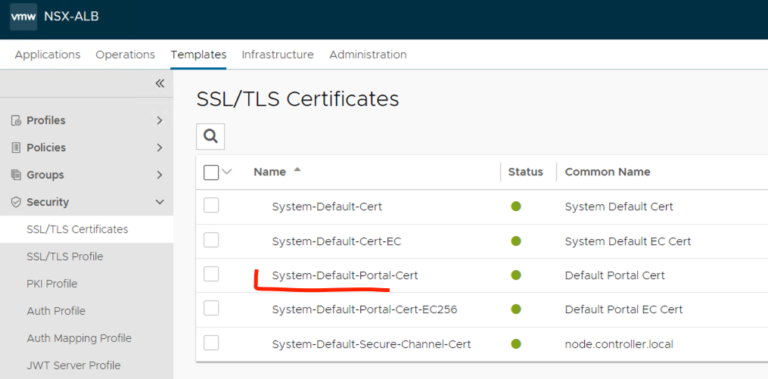Are you curious about mobile app development and why it’s such a valuable skill to learn?
In this article, we will explore the world of mobile app development, including the different platforms like iOS, Android, and Hybrid.
We will delve into the basic steps of app development from conceptualization to deployment, discuss the essential skills needed for mobile app development, and explore the best resources available for learning.
Let’s dive in and discover the exciting world of mobile app development!
Key Takeaways:
What is Mobile App Development?
Mobile App Development refers to the process of creating software applications that run on mobile devices like smartphones and tablets.
With the increasing reliance on smartphones for daily tasks and the exponential growth of the app market, mobile app development has become a pivotal tool for businesses to engage with their customers and stay competitive in the digital landscape. Businesses can choose between native and hybrid app development approaches, each with its own set of advantages.
Native apps offer superior performance and user experience by being specifically tailored for a particular platform, while hybrid apps provide cost-effectiveness and faster development cycles by enabling code sharing across different operating systems.
Why is it Important to Learn Mobile App Development?
Learning Mobile App Development is crucial for individuals and businesses to tap into the booming market of mobile applications and ensure success in reaching users effectively.
Mobile applications have become an essential part of our daily lives, offering convenience and efficiency like never before. By acquiring the skill set of mobile app development, one can create innovative solutions tailored to the specific needs of users, thereby enhancing user experience and loyalty. Businesses that invest in developing their own mobile apps gain a competitive edge by offering seamless interactions with customers, boosting brand visibility, and driving revenue.
Understanding various testing strategies ensures the delivery of high-quality apps that meet user expectations, leading to increased user satisfaction and positive reviews. Partnering with a reputable development company can further streamline the process and help in achieving market success by staying ahead of trends and user preferences.
What are the Different Platforms for Mobile App Development?
There are several platforms for Mobile App Development, including iOS, Android, and Hybrid, each offering unique opportunities and challenges for developers.
In terms of iOS development, Apple’s platform is known for its seamless integration with the hardware, ensuring high performance and sleek design. The strict app submission guidelines of the App Store encourage quality and consistency, contributing to a positive user experience.
On the other hand, Android development provides a more open environment with a wide range of devices to cater to, allowing for greater customization but also requiring thorough testing to ensure compatibility across various screen sizes and versions.
Hybrid development combines elements of both iOS and Android, offering cost-effectiveness and cross-platform capabilities but sometimes sacrificing performance for versatility.
iOS
iOS, the operating system developed by Apple, powers devices like iPhones and iPads, making it a lucrative platform for app development.
iOS app development involves using programming languages such as Objective-C and Swift, with Swift gaining popularity for its modern syntax and safety features. Developers can access a plethora of resources provided by Apple, including the official documentation, development tools like Xcode, and the Apple Developer Program for distribution on the App Store.
The App Store serves as a crucial marketplace for iOS apps, offering developers a platform with millions of potential users. The store’s curated environment, combined with Apple’s stringent review process, helps maintain quality standards and foster user trust.
Android
Android, the mobile operating system by Google, dominates the market share, making it a vital platform for app developers to reach a wide user base through the Google Play Store.
One of the key characteristics of Android app development is its versatility, allowing developers to create innovative apps catering to various user preferences. In terms of programming languages, Java has been a popular choice for Android app development due to its robustness and compatibility with the Android ecosystem. Kotlin, a more modern language, has gained traction among developers for its conciseness and enhanced features.
The user base on the Google Play Store is diverse, ranging from tech enthusiasts to casual users seeking entertainment or productivity tools. To engage users effectively, developers can employ strategies such as personalized notifications, in-app rewards, and seamless user interfaces to enhance user experience and retain user interest.
Hybrid
Hybrid app development combines elements of web and native applications, offering a cost-effective solution for businesses looking to target multiple platforms with consistent user experiences.
One of the key benefits of leveraging hybrid app development is the ability to reach a broader audience as these applications can run on both iOS and Android devices. The cost-effectiveness of hybrid apps is particularly attractive for businesses with limited resources, allowing them to create cross-platform applications without the need for separate development teams. When designing hybrid apps, developers must consider optimizing performance and user experience across different operating systems and screen sizes.
What are the Basic Steps of Mobile App Development?
The Basic Steps of Mobile App Development involve idea conceptualization, wireframing, development and coding, testing and debugging, and finally, deployment and launch to ensure a successful app release.
Once the idea for the mobile app is established, the next crucial stage is wireframing, where the basic layout and structure of the application are defined. This blueprint serves as a visual guide and helps in planning the user experience.
- Following a solid wireframe, the development and coding phase begins. This is where the app’s functionality takes shape, with programmers writing code to bring the app to life.
- Testing and debugging play a vital role in ensuring the app functions smoothly without any glitches. Quality assurance processes are implemented to identify and rectify any errors or issues.
- The deployment and launch phase is reached, marking the culmination of all efforts. This is the moment when the app is released to the public, aiming for success in the competitive app market.
Idea and Conceptualization
The first step in Mobile App Development is idea conceptualization, where businesses and developers brainstorm innovative concepts that can lead to successful app creations.
This entails identifying a problem that needs solving or a gap in the market that can be filled with a new app.
Researching customer needs, preferences, and trends is crucial in this stage to ensure the idea aligns with user demands. Developers can leverage tools like surveys, market research, competitor analysis, and user feedback to gather valuable insights. Collaborating with cross-functional teams and stakeholders helps in refining and expanding initial ideas. It’s important to focus on creating a unique value proposition that sets the app apart and meets the target audience’s requirements.
Wireframing and Design
Wireframing and Design phase involves creating visual representations of the app layout and structure, focusing on user experience design and testing functionalities to ensure a seamless experience for users.
During this crucial phase, designers carefully map out the app’s interface elements, navigation flow, and interactive features, often using specialized tools like UXPin or Sketch to streamline the process.
- User-centered design principles guide the placement of buttons, menus, and content to enhance usability and accessibility, prioritizing user feedback and iterative improvements.
Conducting usability testing at this stage allows designers to gather valuable insights on user behavior, pain points, and preferences, facilitating adjustments to optimize the app’s interface and functionality.
Development and Coding
The Development and Coding phase involves translating the app design into functional software using programming languages and technical skills, often through hands-on experience on real-world projects.
When diving into the world of app development, having a strong foundation in programming languages like JavaScript, Python, or Swift is essential.
These languages act as the building blocks that developers use to write the code that brings the app design to life.
Proficiency in these languages enables developers to create sophisticated features and ensure the smooth functioning of the application.
Mastering additional tech skills such as database management, API integration, and mobile optimization plays a key role in delivering a seamless user experience.
Real-world projects provide invaluable opportunities to apply these tech skills in practical scenarios, allowing developers to troubleshoot, collaborate, and adapt to the dynamic nature of software development.
Testing and Debugging
Testing and Debugging phase focuses on identifying and fixing software issues, ensuring optimal user experience, and quality assurance for a successful app launch.
During the testing phase, various techniques are employed to assess the functionality, usability, and performance of the application. User Experience Testing plays a crucial role in understanding how users interact with the app, ensuring a seamless and intuitive experience.
Quality Assurance protocols are put in place to validate the reliability and security of the software. Effective bug fixing is achieved through thorough testing methods such as regression testing, unit testing, and integration testing. By implementing these strategies, developers can detect and rectify issues early on, leading to a smoother app launch and enhanced user satisfaction.
Deployment and Launch
The Deployment and Launch phase involves releasing the app to the market, requiring strategic planning, effective marketing, and post-launch monitoring for a successful app introduction.
Successful deployment of a mobile app involves a carefully orchestrated process to ensure its visibility and usability in the market. Market strategies play a crucial role in determining how well the app will be received by the target audience. Engaging in extensive market research to understand user preferences, analyzing competitors’ strengths and weaknesses, and identifying potential promotional channels are essential steps in this phase.
Setting clear success metrics and KPIs helps in evaluating the effectiveness of the app launch strategy. These metrics could include download numbers, user retention rates, in-app purchases, and user feedback. Monitoring these metrics post-launch allows the app developers to make data-driven decisions for continuous improvement and user engagement.
To optimize user engagement and ensure long-term success, developers should focus on post-launch activities such as regular updates, feature enhancements, and customer support. Responding promptly to user feedback, fixing bugs, and introducing new functionalities help in retaining users and attracting new ones. Leveraging social media, app store optimization, and user acquisition strategies are also vital for sustaining app visibility and relevance in the competitive app landscape.
What are the Essential Skills for Mobile App Development?
Essential Skills for Mobile App Development include proficiency in programming languages, user interface design, user experience optimization, database management, and project management to create successful and engaging applications.
In terms of programming languages, developers should have a solid understanding of languages like Java, Swift, or Kotlin to build the application’s core logic.
The UI/UX design principles play a vital role in attracting users, so knowledge of wireframing, prototyping, and responsive design is crucial.
Efficient database handling skills are necessary for managing user data securely and effectively.
Project management techniques aid in coordinating tasks, managing resources, and ensuring timely delivery of the finished product.
Programming Languages
Proficiency in Programming Languages such as Java, Swift, and Kotlin is essential for mobile app developers to build functional and innovative applications.
Java, Swift, and Kotlin are some of the most widely used languages among app developers due to their versatility and efficiency. Java, known for its platform independence, is heavily utilized in Android app development, while Swift, with its concise syntax, is preferred for iOS development. Kotlin, on the other hand, combines the best features of Java and Swift, offering enhanced performance and productivity. It is crucial for aspiring developers to familiarize themselves with these languages to stay competitive in the ever-evolving tech industry. Resources like online courses, coding bootcamps, and community forums can aid in mastering these languages and honing the necessary technical skills.
User Interface (UI) Design
User Interface (UI) Design focuses on creating visually appealing and user-friendly interfaces that enhance the overall user experience of mobile applications.
UI design is crucial in app development as it directly impacts how users interact with the app, affecting user engagement and retention rates. By incorporating user experience principles such as intuitive navigation, clear visuals, and interactive elements, designers can create apps that are not only aesthetically pleasing but also easy to use.
Considering design considerations like color schemes, typography, and layout can significantly influence how users perceive the app’s brand and functionality. UI designers can leverage various resources and articles available online to stay updated with the latest trends and best practices in UI design, ensuring that their apps are relevant and competitive in the market.
User Experience (UX) Design
User Experience (UX) Design involves optimizing the interaction between users and the app, focusing on usability, accessibility, and engagement to create memorable and effective mobile experiences.
In terms of app development, the significance of UX design cannot be overstated. A well-crafted user experience can make or break an app’s success in a highly competitive market. Comprehensive testing methodologies play a crucial role in ensuring that the app functions seamlessly, providing users with a smooth and intuitive experience. In addition, market strategies need to be carefully thought out to attract the right audience and gain a competitive edge.
Branding considerations are essential in establishing a distinct identity for the app. Branding not only impacts user perception but also influences their loyalty and trust in the product. Implementing effective branding strategies can significantly enhance an app’s visibility and recognition.
User engagement strategies are key to keeping users actively involved and interested in the app. By incorporating interactive features, personalized content, and feedback mechanisms, developers can foster a strong connection with users, leading to increased retention rates and overall app success.
Database Management
Database Management is crucial for mobile apps to store and retrieve data efficiently, requiring developers to have strong tech skills and real-world project experience.
Database management plays a fundamental role in ensuring that mobile applications function smoothly and provide users with accurate and timely information. Developers need to possess a deep understanding of database technologies such as SQL and NoSQL to design and optimize databases for mobile platforms.
Handling real-world projects allows developers to apply their knowledge in practical scenarios, leading to a more comprehensive understanding of database management in the context of app development. Mentorship can greatly aid developers in mastering database handling by providing guidance, feedback, and best practices from experienced professionals.
Project Management
Project Management in mobile app development involves coordinating tasks, timelines, and resources efficiently to deliver projects on time and within budget, ensuring market success for the app.
Success metrics for app development projects often revolve around meeting deadlines, staying within the allocated budget, and achieving predefined performance targets. Project managers play a critical role in aligning team members towards common objectives, fostering collaboration and communication among developers, designers, and stakeholders. Resources available to project managers include various software tools for project planning, budget tracking, and team communication. Articles focusing on project management in app development offer valuable insights into agile methodologies, risk management, and quality assurance best practices.
What are the Best Resources for Learning Mobile App Development?
To learn Mobile App Development effectively, aspiring developers can utilize various resources such as online courses, books, mobile app development communities, YouTube tutorials, and coding bootcamps for comprehensive learning.
One highly recommended online platform for learning mobile app development is Udemy, offering a wide range of courses suitable for beginners to advanced developers. Codecademy is another excellent resource that provides interactive coding lessons, including mobile app development. For those who prefer learning from books, ‘iOS Programming: The Big Nerd Ranch Guide’ by Joe Conway and Aaron Hillegass is a popular choice, offering practical insights and hands-on exercises.
Engaging with mobile app development communities such as Stack Overflow and GitHub can also provide valuable insights, collaborations, and networking opportunities. YouTube channels like ‘The Net Ninja’ and ‘Traversy Media’ offer detailed tutorials on various aspects of mobile app development, catering to different learning styles.
If you prefer immersive learning experiences, coding bootcamps like General Assembly and App Academy offer structured programs to enhance your mobile app development skills, providing hands-on projects and mentorship.
Online Courses
Online Courses offer flexible learning options for individuals interested in Mobile App Development, covering topics like development strategies, design principles, user experience optimization, and testing methodologies.
These courses provide individuals with the convenience of learning from anywhere at their own pace, allowing them to acquire essential skills needed to create successful mobile applications. By focusing on design principles, students can grasp the importance of creating visually appealing and user-friendly apps. The emphasis on user experience ensures that developers understand how to create intuitive interfaces that enhance user satisfaction. Exploring testing methodologies equips learners with the tools to identify and rectify bugs efficiently.
Books and E-books
Books and E-books are valuable resources for learning Mobile App Development, providing in-depth knowledge on programming languages, design principles, and development strategies.
Through books and e-books, individuals can delve into the intricacies of various programming languages such as Java, Swift, and Kotlin, essential for app development. They serve as comprehensive guides, offering step-by-step tutorials on coding practices and debugging techniques. These resources focus on essential design principles like user experience, interface design, and app usability, crucial for creating intuitive and visually appealing mobile applications. They provide insights into development strategies, including project management, version control, and testing methodologies, shaping well-rounded app developers.
Mobile App Development Communities
Mobile App Development Communities are online platforms where developers can collaborate, share insights, and stay updated on the latest trends through group discussions, social posts, and community engagement.
These communities offer developers a supportive environment to brainstorm ideas, seek advice, and showcase their work to a like-minded audience. By actively participating in these online groups, developers can enhance their skill set, gain exposure to new technologies, and establish valuable connections within the industry. Engaging in discussions and staying up-to-date with community posts can provide valuable insights into emerging market trends and upcoming opportunities in the mobile app development landscape.
YouTube Tutorials
YouTube Tutorials provide visual learning experiences for mobile app developers, offering practical tips, industry insights, and real-world examples to enhance skills in areas like design, coding, and digital sales.
Learning from these tutorials not only provides valuable coding expertise but also grants inside knowledge on effective design strategies, user experience optimization, and monetization techniques. By watching these videos, aspiring developers can gain a comprehensive understanding of the app development process, from conceptualization to launch. These tutorials play a vital role in fostering creativity and problem-solving abilities through hands-on projects and interactive exercises.
Coding Bootcamps
Coding Bootcamps offer intensive training programs for individuals seeking hands-on experience in mobile app development, connecting them with industry experts, real-world projects, and career advisors for professional growth.
One significant benefit of enrolling in coding bootcamps is the networking opportunities they provide. These programs offer a chance to connect with like-minded professionals and industry leaders, expanding your network and opening doors to potential collaborations and job opportunities.
Through participating in real-world projects during the bootcamp, aspiring developers gain valuable hands-on experience that helps bridge the gap between theoretical learning and practical application. This exposure allows individuals to showcase their skills and build a portfolio of completed projects to present to potential employers or clients.
Frequently Asked Questions
1. What are the best mobile app development tutorials for beginners?
There are many great tutorials for beginners, but some popular options include Udemy’s “The Complete iOS App Development Bootcamp” and Coursera’s “Introduction to Mobile Application Development using Android.”
2. Are there any free mobile app development tutorials available online?
Yes, there are plenty of free tutorials available online for mobile app development. Some popular options include YouTube channels like iOS Academy and Android Developers, as well as websites like Codecademy and W3Schools.
3. How long does it typically take to complete a mobile app development tutorial?
The time it takes to complete a mobile app development tutorial will vary depending on the complexity of the tutorial and your own pace. Some tutorials can be completed in a few hours, while others may take several weeks.
4. Do I need any prior coding experience to follow a mobile app development tutorial?
It depends on the tutorial. Some tutorials are designed for complete beginners, while others may assume some prior knowledge of coding. It’s always a good idea to check the prerequisites before starting a tutorial.
5. Can I use a mobile app development tutorial to create apps for both iOS and Android?
Yes, there are tutorials available that teach how to develop apps for both iOS and Android. However, some tutorials may focus on one specific platform, so make sure to check before starting if you want to develop for both.
6. Are there any live, interactive mobile app development tutorials available?
Yes, there are live online classes and workshops available for mobile app development. These can be a great option for those who prefer a more hands-on, interactive learning experience. Websites like Skillshare and General Assembly offer live classes in mobile app development.





